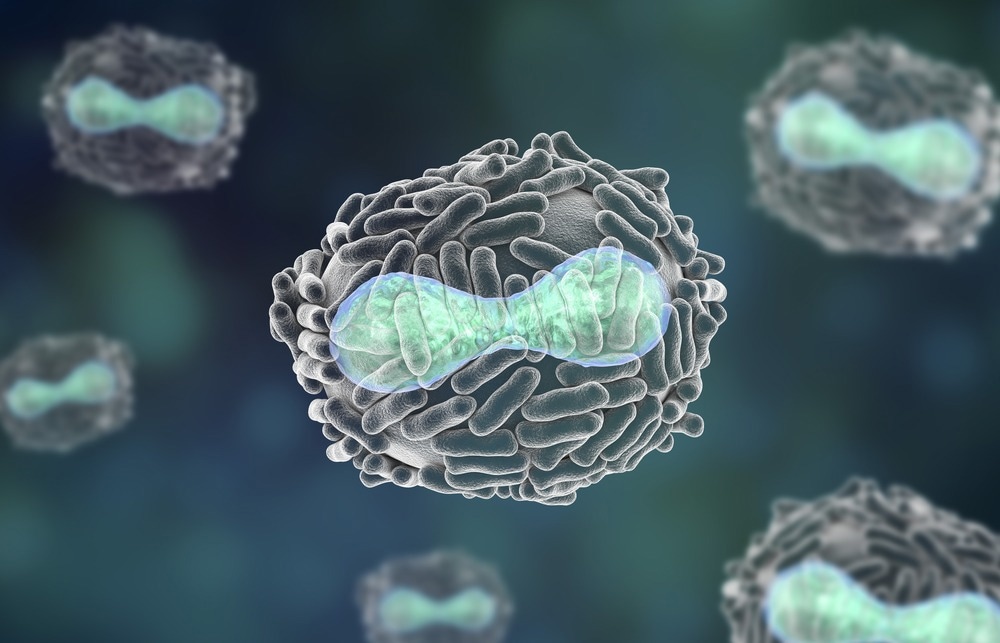Pox viruses get a head start on infecting a host by delivering a package of proteins that interferes directly with the innate immune system of the host.

Image Credit: Kateryna Kon/Shutterstock.com
Researchers from the University of Birmingham and ETH Zurich have discovered that the pox virus begins to do this right away after infection, even before it has started to replicate, by using proteins that are specifically made to target crucial components of the host’s immune response.
The interdisciplinary team has identified these proteins for the first time. This has revealed the molecular mechanisms at play and, in turn, opened up new opportunities for the development of anti-poxvirus treatments. The study was published in the journal PLOS Pathogens.
Our current arsenal of pox anti-viral agents is limited and only available for emergency use, so new anti-viral treatments would be extremely valuable. Our research identifies a highly unusual ability to bring immunosuppressing proteins into the host right at the start of the infection. By understanding what proteins the virus brings and how they work, we can start to investigate how to exploit them for new treatments.”
Jason Mercer, Co-Lead Researcher and Professor, University of Birmingham
In the research, relevant proteins in the smallpox vaccine, vaccinia virus, which belongs to the same virus family as monkeypox virus and the smallpox virus—variola—were identified and characterized using mass spectrometry-based proteotyping and super-resolution microscopy.
All viruses want to invade cells and reproduce successfully, but they also need to figure out how to get around the body’s innate immune system, which serves as a general defense against pathogen invasion.
The majority of viruses accomplish this by creating proteins during replication that can avoid and combat the immune system. In contrast, pox viruses are unique in that they immediately contain and deliver immune-modulating proteins.
Within the lateral bodies, which are viral delivery packets, the research team discovered 15 new proteins. Importantly, they discovered five “redox” proteins that interact with Reactive Oxygen Species, which are components of the immune system.
Reactive oxygen species (ROS) are extremely reactive molecules that are crucial in eliminating pathogens that the body’s innate immune system has detected. The redox proteins in the pox virus are released early in the infection with the goal of locating and suppressing ROS.
Identifying the precise nature of the proteins contained with the lateral bodies was a complicated process because poxviruses are highly complex molecular structures. This work represents a big step in advancing our understanding of the molecular mode of action of this important family of viruses which is timely/relevant considering the current multi-country monkeypox outbreak in non-endemic countries.”
Bernd Wollscheid, Professor, ETH Zurich
The UK and Swiss research team’s next steps will involve testing the protein mechanisms in animal models to determine how they function both separately and collectively to inhibit the host immune response.
Source:
Journal reference:
Bidgood, S. R., et al. (2022) Poxviruses package viral redox proteins in lateral bodies and modulate the host oxidative response. PLoS Pathogens. doi.org/10.1371/journal.ppat.1010614.